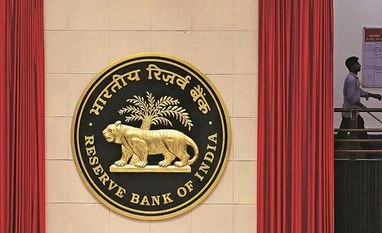The credit channel of monetary policy transmission in India is robust, however, its effectiveness is hampered by asset quality of issues of banks, an RBI working paper on “asset quality and credit channel of monetary policy transmission in India” revealed.
Hence, for monetary policy actions to have their full impact, banks need to strengthen their capital position and address quality issues.
While asset quality issues have an impact on the credit growth of the economy, better capital position of banks can negate the effect.
“Controlling asset quality, in the short-run, the credit channel of monetary transmission of public sector banks is stronger relative to that of private sector banks”, the RBI working paper said.
The paper evaluates the impact of asset quality of scheduled commercial banks in India on the credit channel of monetary policy and has been authored by Janak Raj, Deba Prasad Rath, Pratik Mitra, and Joice John.
The paper goes on to say that the slowdown in credit growth that the economy witnessed post 2013 was a result of poor asset quality of banks. Also, the slowdown in economic activity did have an impact on the phenomenon and so did the slowdown in deposit accretion of banks.
“However, the accommodative stance of monetary policy and reduction in the policy repo rate (starting from 2019) helped cushion the credit deceleration. In the absence of a sharp cut in the policy repo rate, the slowdown in credit growth would have been far more severe,” the paper revealed.
In their commentary, the authors suggested that had the banks maintained higher levels of capital, credit growth in the economy would have gotten a boost.
“Therefore, for monetary policy actions to have their full impact on the credit channel, it is imperative that the asset quality concerns of banks are addressed and that their capital positions are strengthened”, the RBI working paper said.
In September 2013, credit growth of public and private sector banks was at 15 per cent and 17.7 per cent, respectively. Since then, however, credit growth of private and public sector banks went in different directions. Credit growth of private sector banks generally accelerated, with growth remaining more than 20 per cent between December 2017 and March 2019, whereas that of public sector banks (PSBs) decelerated to (-)0.01 per cent in December 2016 and remained below 10 per cent thereafter.
Data suggests, credit growth of public sector banks remained at such a low level that in March 2019, credit growth of private sector banks was over 20 percentage points higher than their state-owned counter parts.
In their assessment, the authors of the paper found that nominal gross domestic product (GDP) has a positive impact on credit growth with a maximum of one quarter lag indicating that an increase in economic activity leads to an expansion in credit within one quarter. Similarly, deposit growth also had a positive effect on credit growth with a lag of zero to two quarters, suggesting that credit growth could suffer up to two quarters in a scenario in which banks are not able to mop up deposits.
Furthermore, investment growth of banks is negatively related to deposit growth, indicating that banks which allocate more funds for financing statutory liquidity ratio (SLR) and non-SLR investments reduce credit with a lag of up to two quarters.
“An increase (decrease) in policy rate by 100 basis points causes the credit to decline (increase) by 1.95 per cent with a lag of six quarters, validating the existence of a robust credit channel of monetary transmission in India”, the working paper said.
Unlock 30+ premium stories daily hand-picked by our editors, across devices on browser and app.
Pick your 5 favourite companies, get a daily email with all news updates on them.
Full access to our intuitive epaper - clip, save, share articles from any device; newspaper archives from 2006.
Preferential invites to Business Standard events.
Curated newsletters on markets, personal finance, policy & politics, start-ups, technology, and more.
)